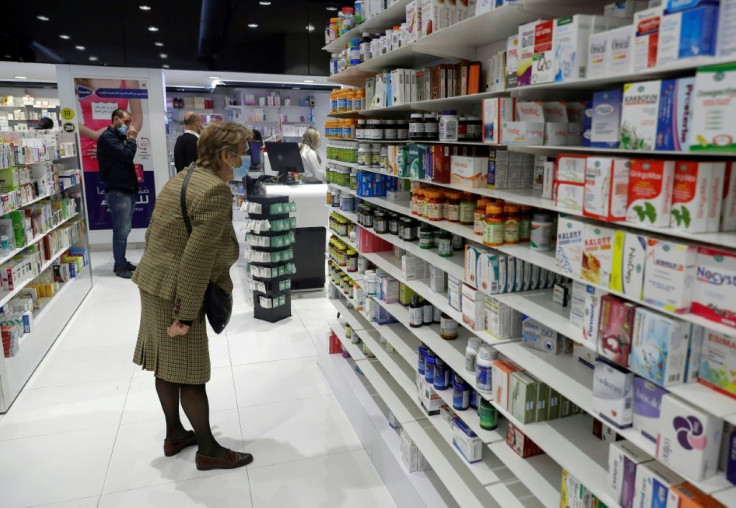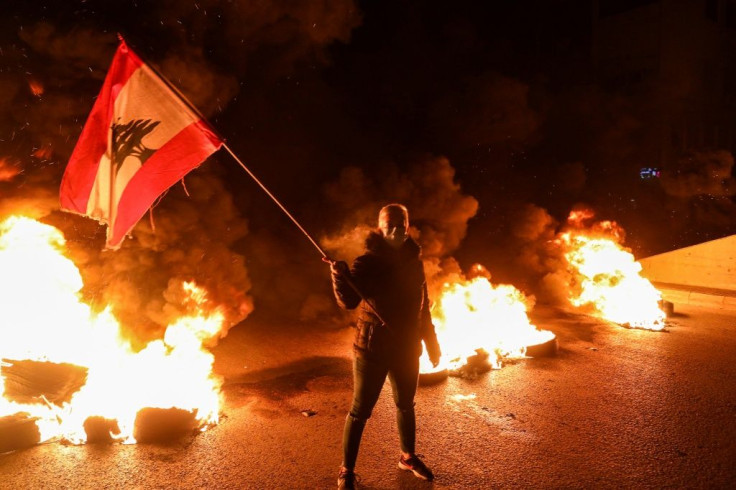Lebanon Pound Plummets To All-time Low
The Lebanese pound hit an all-time low against the dollar Tuesday, prompting angry new protests over a deepening economic crisis that has thrown more than half of the population into poverty.
The pound had been pegged to the dollar at 1,500 since 1997, but the country's worst economic crisis since the 1975-1990 civil war has seen its unofficial value plummet.
On Tuesday, it was trading at nearly 10,000 pounds to the dollar on the black market, money exchangers told AFP.
"It's crazy what's happening," one money exchanger said on condition of anonymity.
In the evening, dozens of protesters blocked off roads in Beirut and other parts of the country, some of them burning tyres.
"What is happening is unacceptable... People need to revolt," one protester told a television channel in the capital.
There were also demonstrations in the northern city of Tripoli, Saida in the south and in the eastern region of Bekaa.

Before the latest downturn, the pound had briefly stabilised at 8,000-8,500 to the greenback in recent weeks.
In July, it had reached 9,800 to the dollar.
The dizzying depreciation came as the central bank started reviewing Lebanon's lenders, under international pressure for reform.
As part of a series of demands, it had given them a Sunday deadline to increase their capital by 20 percent.
On Monday, a central bank committee "agreed on a roadmap with deadlines for the Bank of Lebanon to take appropriate measures" if these requirements were not met, it said in a statement.
Lebanon's Al-Akhbar newspaper said Tuesday that the currency plunge was partly the result of commercial banks sucking dollars out of the market to meet the capital demands of the central bank.

The slide in the value of the pound has led to soaring food prices in a country where more than half of the population now lives below the poverty line.
Lebanon has been without a fully functioning government since outgoing premier Hassan Diab resigned in the wake of a devastating explosion in Beirut port last year.
The blast killed more than 200 people and piled new misery on a country already brought to its knees by the economic crisis.
"They've driven us to begging, they're starving us," one protester said.
"We've been sitting at home for ages, then there was the port blast, and they haven't formed a government. We've had enough of this ruling class."
The crisis has also had knock-on effects on neighbouring Syria, whose currency also hit a record low on Tuesday, compounding the economic catastrophe caused by a decade-long civil war.
The exchange rate reached 4,000 Syrian pounds to the US dollar in Damascus.
"What's happening in Lebanon is affecting the Syrian pound because Lebanon is one of the main channels for the Syrian government to the external market," analyst Zaki Mehchy told AFP.
But he noted that this was just one factor for the Syrian pound's drop in value on the black market.
Parts of Syria controlled by the government, under Western sanctions, have long relied on Lebanon as a conduit for dollars.
Lebanon was rocked by mass protests in 2019 against a political class deemed inept and corrupt, but those demonstrations largely petered out after the coronavirus pandemic arrived in the country.
Maha Yahya of Carnegie's Middle East Centre said Lebanon's political leaders had prevented an economic rescue plan from taking shape.
"#Lebanon's Lira (pound) collapses further -- political deadlock continues and no policies to stem the collapse!" she tweeted.
She warned that the falling pound could "trigger wide spread protests, violence & significant breakdown in law & order."
© Copyright AFP 2024. All rights reserved.





















